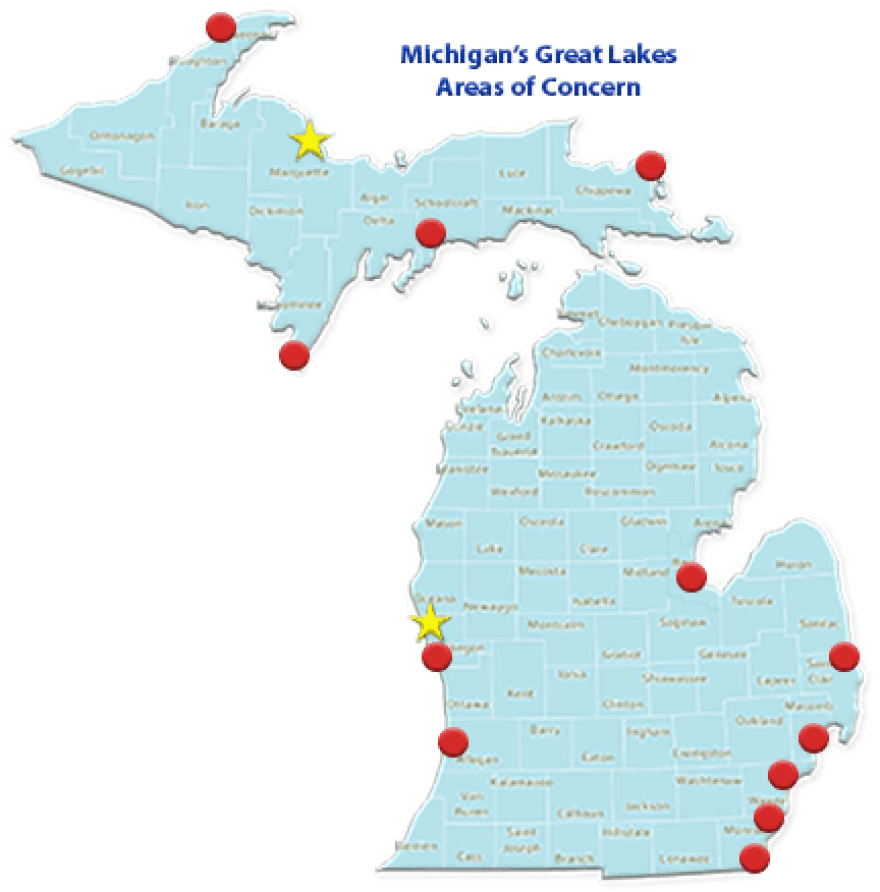The St. Clair River is on a list of toxic hot spots in Michigan. They’re called Areas of Concern.
The river is on this list because of a long history of industrial pollution. But people have been working to clean it up.
In order to take the river off the list, there are a number of problems that have to be fixed.
One of these is beach closings. Those can happen when untreated sewage gets into the river during storms. But officials say things are getting much better on that front.
Patty Troy is a U.S. co-chair of the St. Clair River Area of Concern Bi-national Public Advisory Council.
She says the main problem with beach closings on the St. Clair River has been due to the combined sewer overflows that have existed in the area. It's a problem that exists throughout the Great Lakes region.
"When you have combined sewers, that means the stormwater as well as the sewage is transported through those combined sewers to the wastewater treatment plant. And that works fine during periods of low flow, but during periods of very high flow, during a very heavy rain event, that means that the carrying capacity of the pipes can’t transport it all to the wastewater treatment plant," she explains. "So some of the combined wastes, the stormwater and the sewage, overflow out from these points directly into the waterway.”
And you can end up with E. coli on beaches, and that can make people sick.
Troy says cities near the St. Clair River have made a major effort to separate their storm water and sewage systems.
"In 1991, there were a total of 49 combined sewer overflow outfalls on the St. Clair River and tributaries. Today, there is one on the Black River, which is a tributary to the St. Clair. So that’s a tremendous amount of improvement," she says.
She says this doesn't mean there will no more beach closings in the area – that'll continue to be a possibility, and she says the local health department will keep up its beach monitoring program.
Troy says there’s more cleanup left to do to get the St. Clair River off the Areas of Concern list. She thinks that can be wrapped up in the next year or so on the U.S. side. But she says Canada will need a few more years to clean up things on its side of the river.





